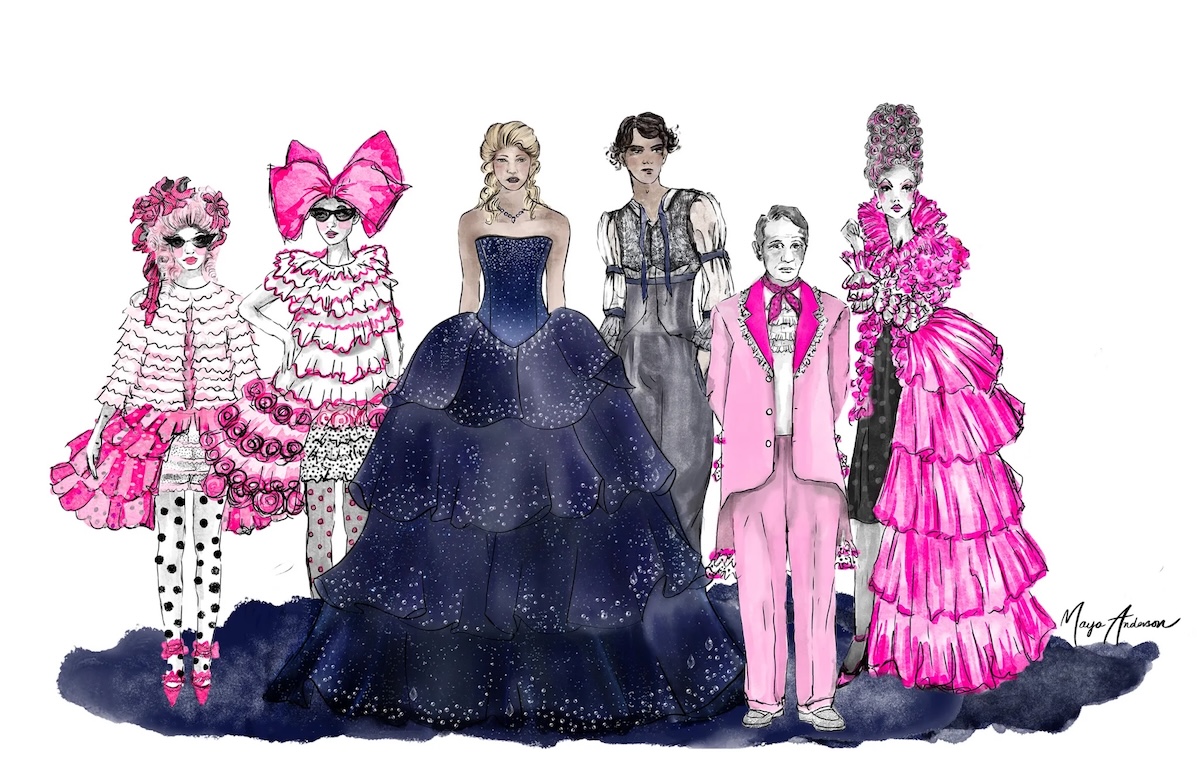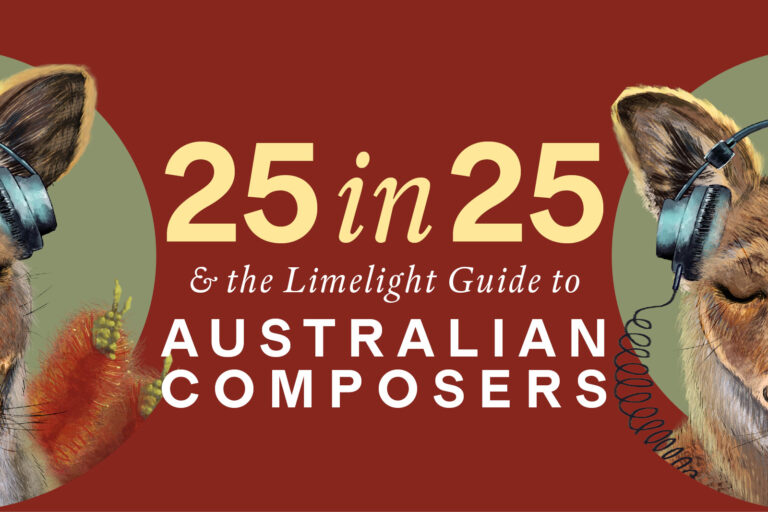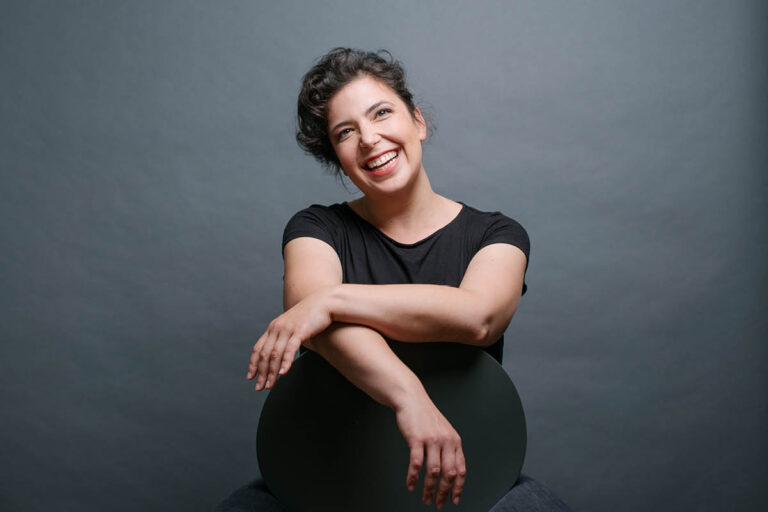When Jules Massenet’s Cendrillon premiered in Paris in 1899, its glittering world of midnight enchantments and tender romance dazzled an audience just discovering the possibilities of electric stage lighting.
More than a century later, some of that magic – with some digital age vibes added in for good measure – returns in a Victorian College of the Arts and Melbourne Conservatorium of Music co-production of what was for decades, a seldom performed gem.
For director Johanna Allen, the enduring appeal of Cendrillon lies in its accessibility. “There’s something iconic about a fairy tale – you can latch onto it before you’ve even begun,” she tells Limelight. “When you’re a student of opera, that’s a real gift. You might not know your Beaumarchais plays, but everyone knows Cinderella.”
Cendrillon offers more besides, especially for contemporary audiences and performers, Allen says. “It’s a fairy tale, yes, but it’s one that allows for comedy. There’s room for laughter as well as beauty and romance, and that makes it ideal for a cast who are finding their feet as performers.”
Massenet’s Lucette (his ‘Cinderella’) was born into a gilded, fin-de-siècle world. Allen’s heroine lives in a more recognisably 21st century one.
“I gave the team one reference,” she laughs. “The Kardashians!”

Maya Anderson’s costume designs for Cendrillon. Image supplied
Allen’s vision of Cendrillon draws sly parallels between the world of the original story (by Charles Perrault), Massenet’s late-19th-century Europe, and today’s digitally mediated, celebrity-obsessed culture.
“I see the story as an opportunity to highlight how self-absorption has crept into our lives – the power of social media, the endless hunger for more. Lucette’s stepfamily is fabulous fun, but in our staging they really live in that world.”
“In contrast, our Lucette is a strong character – anchored, with integrity,” Allen adds. “And that’s what makes the prince fall for her.”
Maya Anderson, a graduate of the Bachelor of Design (Graphic Design & Performance Design) at the University of Melbourne, has created a deliciously over-the-top range of costumes.
“We’ve gone monochrome for the set, so the costumes really pop – lots of bling, polka dots and wigs that add two metres of height,” Allen says.
“It’s fairy-tale excess colliding with the TikTok universe, but without anyone actually holding a phone. They all act as though there’s an invisible camera filming their best angle.”
This exaggerated comedy, she adds, is balanced by a “rhapsodic stillness” in Lucette’s scenes with the Prince and with her father, Pandolfe. “Underneath everything, there’s great emotional truth in the story. Love conquers all, yes, but so does staying true to who you are.”

Millicent Brake. Portrait supplied
For soprano Millicent Brake, one of two singers sharing the role of Lucette, the challenge has been to make her a young woman contemporary audiences can believe in. “It’s a tricky story to put into a modern context,” she says. “But with Johanna’s direction we’ve tried really hard to make the characters human, not just fairy-tale archetypes.”
Lucette is no shrinking violet, she adds. “She’s not a victim, either. Yes, she’s treated badly by her stepmother and stepsisters, but she has hopes and dreams. She finds purpose in her life, even in serving the family, and she’s connected to nature – she talks about the breeze, the woods, the animals. That poetry hints at her past with her father and the life they had before. It keeps her grounded.”
Brake, who moved from the UK to Adelaide with her family in 2018 and is now completing her Master of Music (Opera Performance) at the Conservatorium, says she was immediately struck by Massenet’s score. “It’s stunning,” she says. “It embodies romantic French music at its best. The harmonies, the textures … it’s magic.”
Her role also offers valuable technical challenges. “Lucette can be sung by either a mezzo or a soprano,” Brake explains. “It’s helped me strengthen my middle register, but she still has those soaring soprano moments. It’s a great piece to finish my degree on.”
Cendrillon is double-cast and supported by a creative team drawn from within the University of Melbourne’s own ranks. “It’s been amazing to see the student designers’ work coming to life,” Brake says. “The costumes, the lighting, even a stop-motion sequence, all of it’s been created here. It’s a real collaboration.”
Allen explains that this blending of mentorship and experimentation is the point. “Your vision must never compromise the music,” she says. “But we also have to present these stories in ways that keep the art form alive. And when you’re working with students, you’ve got to give them material they can really play with.”

Johanna Allen: “Love conquers all, yes, but so does staying true to who you are”. Portrait supplied
That playfulness extends to the choreography – something Allen, who also devised the movement for the production, treats almost as storytelling in its own right.
“There are tableaux, supermodel poses, buttons that mark the end of a musical phrase,” she says. “Those are things I love about musical theatre, and this piece can take that energy. It’s a heightened world, but the students have embraced it – they’re genuinely funny.”
To many listeners today, Massenet is known chiefly for the violin Méditation from Thaïs, but in his lifetime he was one of France’s most popular opera composers, writing more than 30 works that ranged from biblical epics to domestic dramas.
Cendrillon, with its French libretto by Henri Cain, arrived late in his career and became an instant hit at the Opéra-Comique. Yet, like many of his operas, it fell into neglect after his death in 1912.
It wasn’t until 2011 that the Royal Opera House staged it for the first time, in Laurent Pelly’s witty and lavish production – a staging seen in Sydney earlier this year.
That sense of rediscovery makes Cendrillon an ideal project for a new generation. “I hadn’t really seen it around much,” Brake says. “Opera Australia did it earlier this year, which created a lot of excitement for us. It’s nice to bring something different to audiences.”
For Brake, who will take her final bow as Lucette before graduating, the central message of Cendrillon is personal. “It’s a story about holding onto hope,” she says. “Even when the world around you feels shallow or unfair, you keep believing in kindness and in your own worth. And somehow, that magic still works.”
The Victorian College of the Arts and Melbourne Conservatorium of Music co-production of Cendrillon plays at the Union Theatre, Parkville on 5–8 November.


















Comments
Log in to start the conversation.